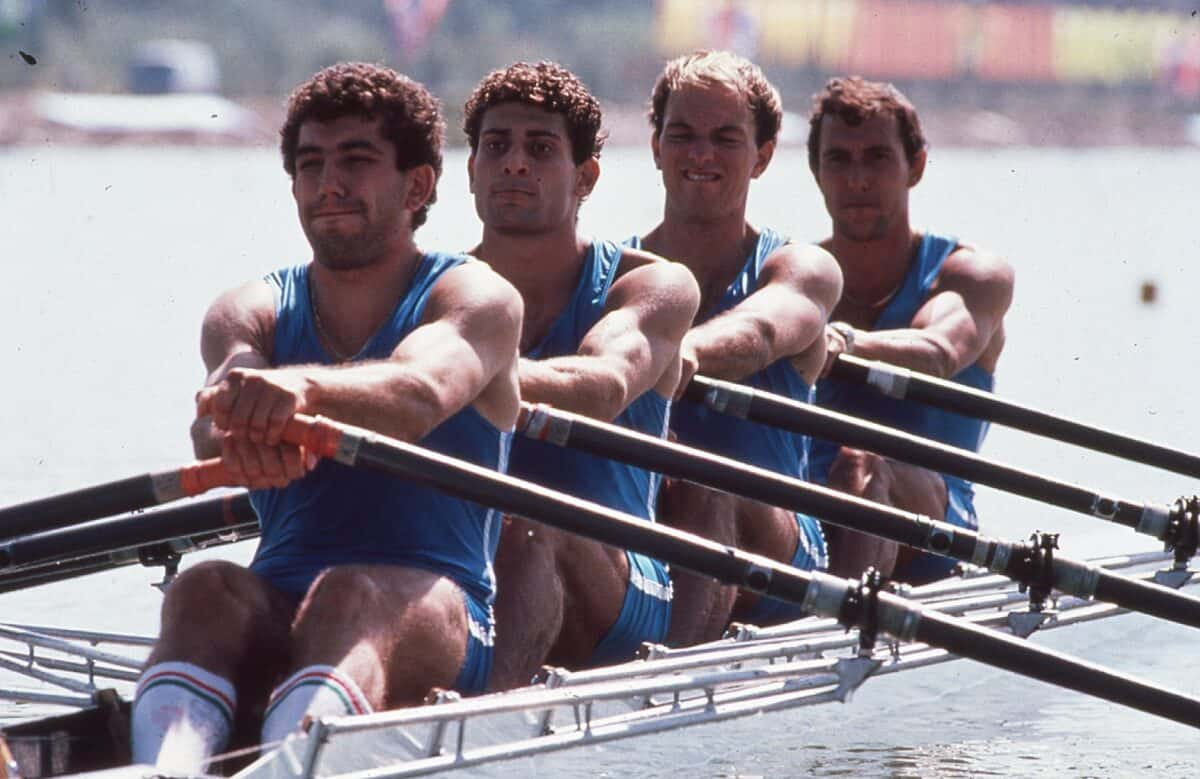
01 Jun 2023
Where they are now: Davide Tizzano
“Once I got into rowing back at the age of 11, I never got out again. Rowing is part of my life, my history and my DNA.”
Rowing is Davide Tizzano’s life. His father took young Davide to Circolo Canottieri Napoli and Davide says “it was love at first sight”.
“I really liked the idea of being on the water, at sea, with boats. I also really liked the club, one of the oldest in Italy, in the centre of Naples.”
Tizzano showed promise from the start and made Italy’s junior national team as a 16-year-old and at the World Rowing Junior Championships he finished in the final in the quadruple sculls. The following year he was already on the Italian under-23 team winning his first international level – a silver in the double sculls. Moving to the single Tizzano scored silver at the junior level, followed by gold the following year. Tizzano describes this as one of his favourite rowing memories.
He was then fast-tracked into Italy’s senior team and at the 1988 Olympic Games, sitting behind the great Agostino Abbagnale, Tizzano in the quadruple sculls, became an Olympic Champion. He was just 20 years old.
After the Seoul Olympics Tizzano moved away from rowing devoting himself to America’s Cup sailing. Instead of participating at the 1992 Olympics, Tizzano was in San Diego, United States sailing in the America’s Cup for Italy’s Moro di Venezia.
The transition to sailing came with relative ease to Tizzano. “Many Italian clubs that have their headquarters on the sea, combine sailing and rowing, so I had the opportunity to start gaining experience. But the most important thing was being able to take sailing courses in the summer because my father believed it was important to know how to sail. The America’s Cup always fascinated me and I got into sailing.”
Tizzano, however, had not retired from rowing. “I had the great fortune to return to rowing, redo the Olympics in Atlanta … and quit again”. His return to rowing was successful and culminated in another Olympic gold, this time in the double and again sitting behind Abbagnale.
Then Tizzano truly hung up his competitive oars. “It was becoming more complicated to do the training and fulfil my life not only from the sporting point of view, but also professionally. The idea of finishing university and dedicating myself to work was stronger than the idea of getting back into the boat”.
The transition to a ‘normal’ life Tizzano admits was not easy. He dedicated himself to the family business but realised that he’d rather work in sport. “I tried to transfer my sporting and competitive skills into the world of organisation, management and planning of sport.” This, Tizzano says, meant he never really got out of the boat as he was back living among athletes and coaches and immersed in competitions. He founded his own rowing company working in sporting events. Most recently Tizzano has become the head of the Mediterranean Games (ICMG).
“Being President of the Mediterranean Games allows me to carry out a whole series of activities related to sport in the countries bordering the Mediterranean, not only referring to the countries of the northern part, but especially those of the African and Asian coasts. There is a lot to do and organising the Games with 26 nations with so many sports is one of the things I enjoy most.”
Tizzano is still recognised for his rowing successes.
“Rowing is a very popular sport in Italy, especially in seaside towns like my city, Naples, so people like to remember me and especially remember the Olympic victories linked to the fantastic commentaries that have given us immortality, namely those of Giampiero Galeazzi, who was one of the best-loved sports journalists in Italy.”
Coastal rowing has taken Tizzano’s interest more recently and he says he tries to row every weekend. Tizzano is also in regular contact with his former teammates.
“I was fortunate to be a boat-mate of Agostino Abbagnale, Piero Poli and Gianluca Farina, whom I consider new brothers. Also all those who have contributed over the years to me competing in competitive crews have a special place in my heart. I am very close to everyone. I am not saying that we talk every day, but almost.”

